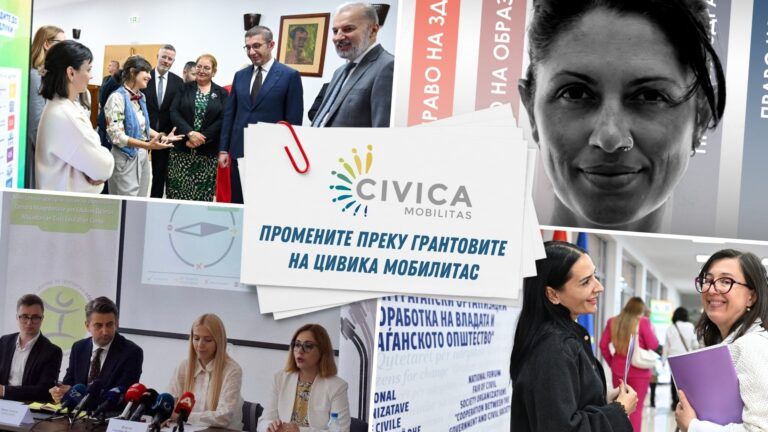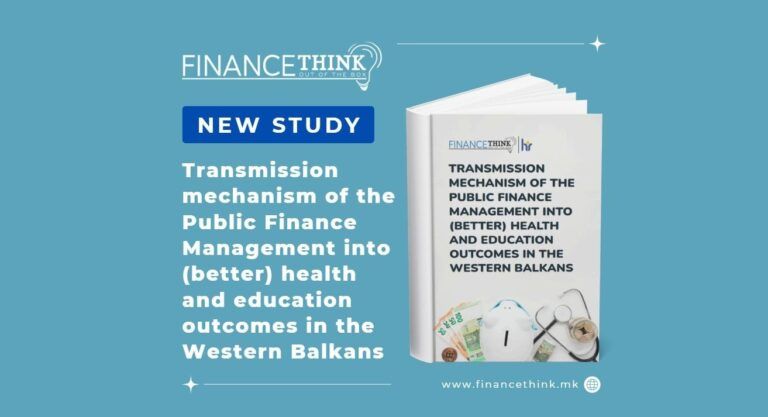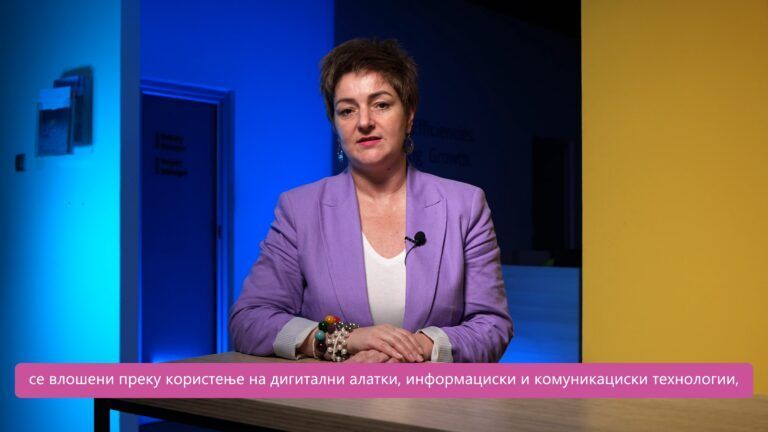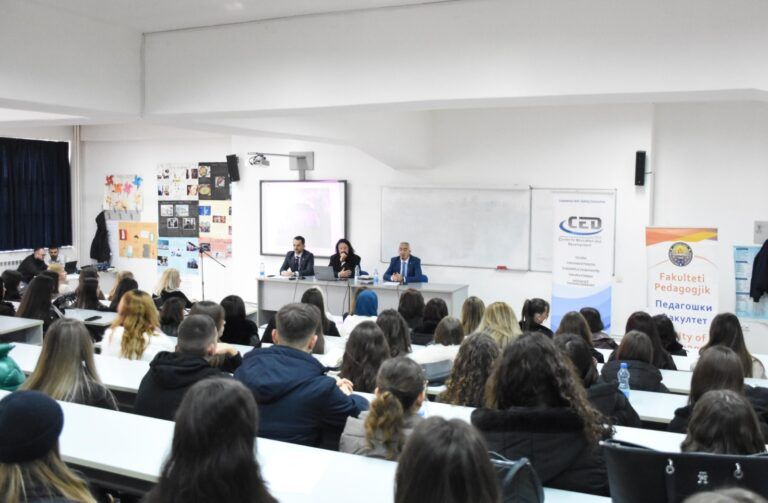A common approach and strategic communications must be the pillar of the fight against disinformation
Building bridges of cooperation. Sharing lessons from different experiences with malicious fake news. Creating strategic platforms. The necessity of strategic action. These are some of the main conclusions of the second session titled: “Geopolitical 360 on information threats – European learned lessons shared for the Western Balkans,” which was held within the framework of the international conference in Skopje organized by the Metamorphosis Foundation, writes Portalb.mk
Martha Turnbull, COI Director of the Hybrid Center of Excellence in Finland, said in her speech that in the last decade the center she represents has conducted numerous campaigns to combat disinformation.
“We see different actors sharing fake news, some of them coming from abroad, some from within countries. Russia still remains the main actor in the Euro-Atlantic region, but we also see actors from China. We see an increase in threats. We have cases where the Russians are creating centers in the country and then acting. Combating these activities is becoming a serious challenge that we need to work on, share information and protect ourselves in a synchronized way,” Turnbull said.
According to Beaudine Verhoek, from NATO’s Public Diplomacy Division, there are harmful threats, manipulative content, coordination, and deliberate manipulation.
“We are highlighting what information we need to respond to and act on. NATO and allies will continue to cooperate with each other, to counter in a timely manner. We have a strategic concept in both Chinese and Russian, to be present for audiences who speak the same language. If we do not tell our story, others will tell it for us. We have launched a campaign in Ukraine and we are supporting it continuously,” Verhoek emphasized, adding that strategic communications should be a pillar of the fight against disinformation.
“No one can act alone. We also have many partners. Today’s conference is important, to exchange lessons learned, to help each other,” added the guest .
Sanda Svetoka, a senior NATO StratCom expert from Latvia, highlighted the experiences from her analysis in her speech.
“We have always been on Russia’s radar, but that has not taught us much about how to deal with these issues. We have created a knowledge base about the tactics of the Russians and what tactics they use in the region. We do regular information exchange about negative actors. We have developed a good basis for adversary narratives. Since 2020, we have started to focus not only on the activities of the Russians, but also on the Chinese in the region. Sharing information is key. The goals of the adversaries are similar for every country. The idea is to coordinate to counter them,” assessed Svetoka.
According to Katarina Klingova, Senior Research Fellow at GLOBSEC, Slovakia, building resistance is a process, something that needs to be facilitated by both the state and civil society.
“Non-governmental organizations can do the most work, they are more flexible, they have different platforms and cooperation. We need the cooperation of all state actors. We need to create space for experts to share their experience. Some do, but some don’t have the space,” Klingova said.
A Dutch expert, on the other hand, spoke about the importance of analyzing and sharing lessons learned.
“We share information so that policymakers can build policies. Lessons need to be learned, analyzed, and shared. Understanding is extremely important. Then comes flexibility and multi-discipline,” emphasized Laura Jasper, Strategic Analyst, HCSS, Netherlands .
“Russian disinformation wants to justify its occupation and present itself as defenders. This rhetoric continues today. We need to focus on the countries that Russia is targeting. Analyze Russia’s narratives, monitor the technologies used to share malicious information, and create networks and collaborations of fact-checking organizations. Authorities must also cooperate and block these messages that threaten public safety. The goal is not only to expose fake news channels, but also to punish them, although that is difficult,” said, among other things, Sonya Dimitrova-Martinyuk, Editor of StopFake, from Ukraine.
Fact-checkers, journalists, researchers, policymakers and civil society leaders from across the Western Balkans and Europe will gather in Skopje today and tomorrow, as part of an international conference organized by the Metamorphosis Foundation, to share lessons learned and experiences in combating disinformation, and to work on creating a network that will serve as a platform to combat malicious fake news and educate the public on how to protect themselves from it.






![[Aggregator] Downloaded image for imported item #43092](https://civicamobilitas.mk/wp-content/uploads/2025/12/media-lit-call-for-proposals-fotor-naslovna.png)
![[Aggregator] Downloaded image for imported item #43146](https://civicamobilitas.mk/wp-content/uploads/2025/12/10-1536x1152-1-1024x768-1-768x576.jpg)

